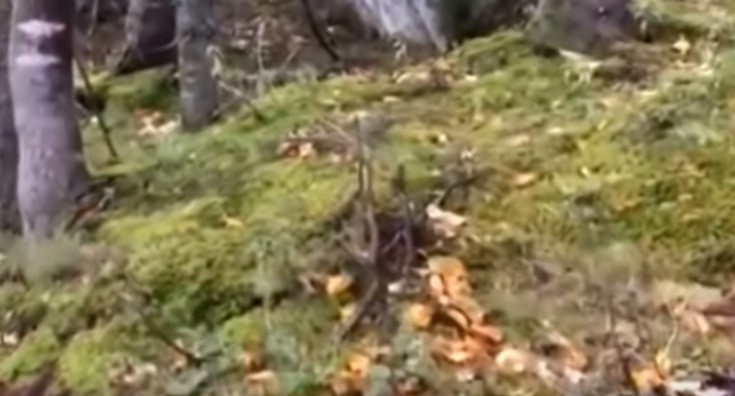
A video apparently filmed from Sacre-Coeur, Quebec is now the hottest debating point among environmentalists and conspiracy theorists. The video shows mother nature gasping for air, and even the surrounding trees seem struggling to withstand the deep breathes of the earth.
The video clip of the strange event was soon shared by popular conspiracy theory channel 'UFOmania' where it racked up more than 1,50,000 views. Most of the people who watched the video argued that humans are going through the end times.
However, keeping aside the theories put forward by conspiracy theorists, experts made it clear that this is a completely natural phenomenon, and they cited the example of a similar event which happened in Nova Scotia.
Experts argue that this spectacular event can be easily explained by inclement weather.
"During a rain- and wind-storm event, the ground becomes saturated, 'loosening' the soil's cohesion with the roots as the wind is blowing on a tree's crown. The wind is trying to 'push' the trees over, and as the force is transferred to the roots, the ground begins to 'heave.' If the winds were strong enough and lasted long enough more roots would start to break and eventually some of the trees would topple," said Mark Vanderwouw, an arborist at Shady Lane Expert Tree Care in Ontario, The Weather Network reports.
In layman's language, strong winds are actually moving the trees, and it causes the roots of these trees to lift the forest floor. As the roots lift the forest floor, it looks like the earth is actually gasping.
Interestingly, a scientific study conducted by a team of researchers at the Joint Global Change Research Institute revealed that earth's soil breathes more heavily when the temperature rises, and this is mainly due to the respiring bacteria and other organisms that live on the soil.
"Soils around the globe are responding to a warming climate, which in turn can convert more carbon into carbon dioxide which enters the atmosphere. Depending on how other components of the carbon cycle might respond due to climate warming, these soil changes can potentially contribute to even higher temperatures due to a feedback loop," said Ben Bond-Lamberty of the Joint Global Change Research Institute, lead author of the study.









